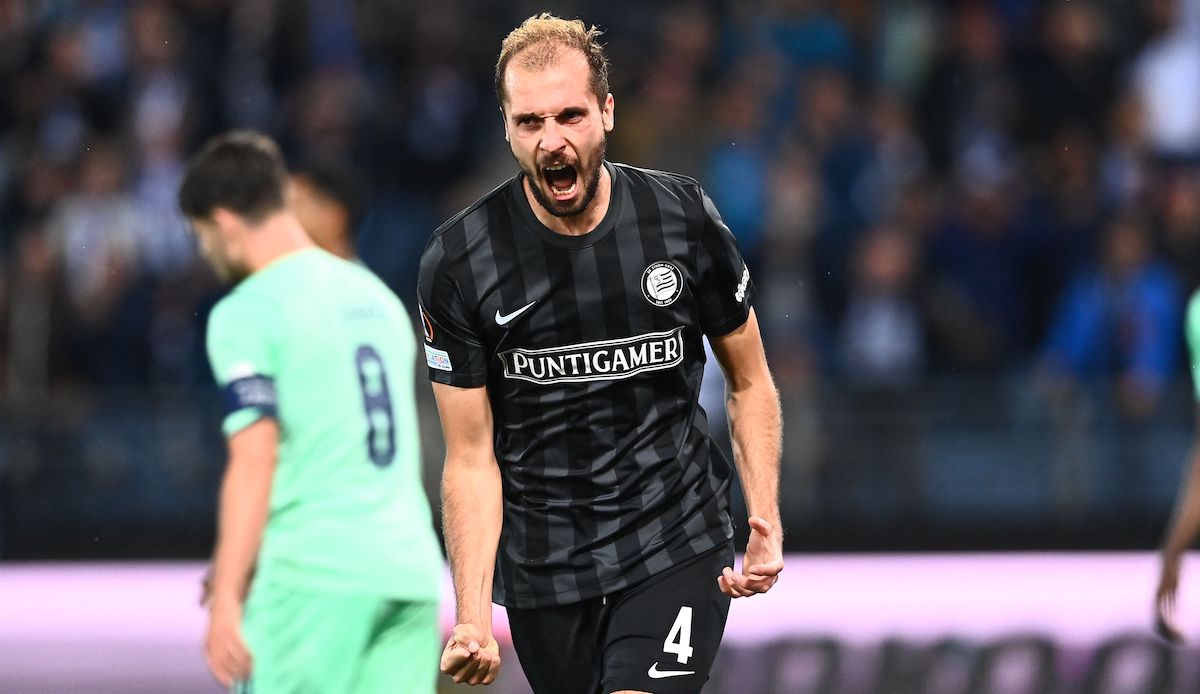María González has just turned 54. In early July 2021, she was diagnosed with advanced colorectal cancer with metastases. The medical specialist at the Doctor Negrín Hospital in Gran Canaria who was monitoring her progress due to a previous illness (an autoimmune hepatitis in a silent period -without symptoms-) had requested a series of tests after María had told her days before, in her first face-to-face consultation after the pandemic, that she had noticed for a long time that something was not right in her body, that she had spent a year “very annoyed”, with pain and intestinal problems. When the colonoscopy detected the primary tumor, the disease had already spread: there were nodules in the lungs, the lymph nodes were affected, also the peritoneum, there was another larger cyst outside the intestine…
Fifteen months earlier, just at the beginning of the pandemic, he had had another control consultation with the same Internal Medicine doctor, a specialist in hepatology (study of the liver), on that occasion by telephone in application of health protocols to prevent the spread of the COVID-19. María remembers that she told him about a series of symptoms, such as the persistence of occasional bleeding in the stool. “He told me that the tests were fine, that the liver was fine and that I had to continue monitoring, that I would have to do new tests, new tests. Before they had told me that the blood could be due to hemorrhoids,” says this patient from Gran Canaria. .
Between the phone appointment in March 2020 and the face-to-face review last summer, Maria was not seen by any other doctor. A few days before this last consultation, she had gone to the hospital to undergo a test related to the disease that had been diagnosed almost two years earlier (September 2019) in the liver. According to the patient, the doctor told her that she could not have a consultation that day for other reasons, that she had scheduled a day exclusively for the tests, but that she would make an appointment so that she could explain her ailments in detail. When she did, days later, “the doctor’s eyes widened,” she says. “She didn’t have time to ask me for a colonoscopy, a CAT scan, some tests… she saw that things were wrong.”
Since then, Maria has received six cycles of chemotherapy. The results of the treatment are being favorable. “When they did the last scan, I was in for a surprise. I have very little left: a nodule in the lung and, in the part where the primary tumor was, there is tissue embedded in the wall of the intestine. This is what we are going to try to remove now”.
Despite these advances, Gran Canaria recognizes that the process is proving to be hard. “Now I’ve had a good week, but I’ve been in bed for fifteen days. At 54 years old, I can’t work, I can’t go out for a long time, because lung or breast cancer is not the same as colon cancer, no It allows me to almost leave the house”. To this are added the side effects of chemotherapy: “Recently they had to remove a piece from my mouth and the maxillofacial was found under a piece of dead bone, from the jaw.”
María regrets the late diagnosis of the disease. “If they had seen me, they would have treated me properly, they would have listened to me in 2020, now in 2021 I would not have had terminal cancer. This is not done from one day to the next,” says the patient, who points out that before the pandemic, in 2019, he underwent a colonography at a private clinic in the capital of Gran Canaria and no tumor was detected.
“Management Rollback”
For Fernando Fraile, president in the Canary Islands of the Spanish Association Against Cancer (AECC), oncology is suffering “a significant setback” in management at all levels of the health administration with the pandemic. The limitations of access to the system during this crisis have hampered advances in early detection of the disease. The Spanish Society of Medical Oncology (SEOM) estimates that in 2020 one in five cancer cases were left undiagnosed due to this exceptional situation.
“We are aware of people who, when they have managed to overcome the barrier of the telephone consultation and finally arrive at the hospital three, four, five or six months later, already have an advanced and dangerous cancer and, in some cases, unfortunately fatal. There are pathologies that They can’t last six months or a year,” Fraile denounces.
The SEOM already issued a position paper on telemedicine in November 2020 in which it warned of the risk of limiting the relationship between the doctor and the patient. As the consultation is not carried out in person, diagnostic decision-making is more complex and symptoms can be underestimated or overestimated.
The representative of the AECC in the Islands refers to two factors to explain the underdiagnosis of the disease during the pandemic: the setback in detection tests, in screening, and the patient’s own containment when going to health centers due to the situation caused by COVID-19. “People are losing the habit of going to the doctor and that is not good. In addition, we had picked up the pace, for example, in colon cancer screening, which is a very simple test, a stool sample, and we have lost again. We are at the bottom of Spain. Only 20-25% of the target population (people between 50 and 69 years old) have had it done, while in other regions we are talking about a percentage of practically 100% , but it is that if they are not treating you if it is not by phone, I understand the patient who says: If the GP does not see me, why am I going to do a screening? I will do it when this is over, “he highlights.
Fraile points out that two years of the pandemic have already passed and the problem remains unsolved. “This has to be interpreted in another way. Cancer is a deadly disease that affects a certain number of people who know how many there are, because unfortunately it repeats itself almost exactly by population number. When you have that knowledge, you already It is time for what I usually call a watertight department to be formed. That other diseases, no matter how bad they are, such as COVID, do not affect the diagnosis and treatment of cancer. We know that health personnel are making an effort enormous, that there is a lack of personnel, that they have to attend to you by phone. It cannot be that a chronic patient does not see the face of his doctor in two years”.
The president of the AECC in the Canary Islands advocates the creation of a Spanish agency against cancer, in the style of the one that already works in other countries, to coordinate actions on the matter, so that screenings are carried out “in a regulated”, that access does not differ depending on the patient’s zip code. “We know that cancer affects everyone equally, but we are not all the same when it comes to cancer. Being a Canarian is not the same as being from another community in terms of prevention,” laments Fernando Fraile, who stresses that the fundamental problem of the pandemic has been one of diagnosis and not of treatment of the disease, although there have been delays in scheduled surgeries.
According to the latest report published by the AECC, 12,002 cases of cancer were diagnosed in the Canary Islands in 2020, a rate of 553 cases per 100,000 inhabitants, lower than the national average, which exceeds 600. The tumors with the highest incidence are, for this reason, order, colorectal, breast, prostate and lung. The study emphasizes the demographic evolution of the Islands. Although the Archipelago continues to have a younger population than the rest of the national territory, there is an increase in the percentage of people over 65 years of age, and even in the group over 80 years of age. That is to say, the phenomenon of “aging of aging” occurs and the consequent increase in the incidence and prevalence of diseases such as oncological diseases, as well as the demand for socio-health care on the islands. The population lives longer, but is more dependent and, therefore, has a lower quality of life.
–



